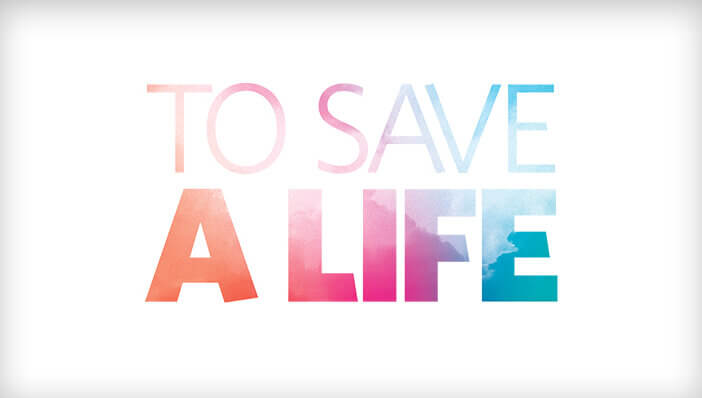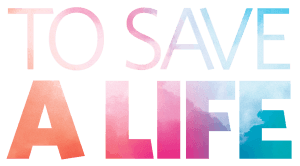
Chloe* was 15 and a sophomore in high school when she started going out with Josh*. He was two years older, good-looking, and very intense. “It was my first real relationship, and I felt important and special,” Chloe says. She couldn’t deny that he had a temper, but honestly, his bad-boy persona was part of what she found so appealing in the first place.
But soon there were problems. When rumors circulated that Josh had cheated on her and she tried to talk to him about it, he got angry. At a school dance, Chloe says, he refused to take pictures because he didn’t like what she was wearing. “It was embarrassing — my family and friends were there, and I didn’t know what to say,” she shares. “He was mad because he didn’t like my outfit?” After that Chloe did “whatever he said” in order to avoid arguing. She didn’t ask questions she wasn’t sure Josh wanted to answer, or make plans with friends before checking with him first. “I thought a fight wasn’t worth it,” she says. “And I loved him.”
Chloe no longer recognized the girl she’d become.
Eventually, she found the courage to break up with Josh, but agreed to stay friends. One night not long after, when they were hanging out at his house, she found him looking through her phone, where he saw text messages from another guy. “Just a friend,” Chloe says, “but Josh didn’t like it.” He ran out of the house, and when she followed him, he grabbed her by the neck and began to choke her. “He told me he was going to kill me and what he was going to do with my body,” she recalls grimly. Afterward, Josh apologized, crying. He begged her not to tell anyone and promised he would never do it again. She didn’t — but he did.
Dating violence is one of those things that happens to other people. Until that is, it happens to you, or someone you know. Maybe he grabbed your wrist too hard or insisted you have sex even though you didn’t feel like it. Later he told you he didn’t mean it, that he was sorry and he wouldn’t do it again. Maybe he didn’t apologize at all.
If any of this sounds familiar, you’re in the company of what may be millions of others, including some particularly high-profile young women — Sarah Hyland has made headlines for allegedly being abused by longtime boyfriend Matt Prokop, and the reports of domestic violence by professional football players continue to be a huge cultural issue.
In fact, a recent study from the Center for Innovative Public Health Research reveals that two in five girls between the ages of 14 and 20 have experienced physical, sexual, or psychological/emotional violence from someone they’ve dated. And according to the Centers for Disease Control and Prevention, approximately 1 in 10 high schoolers has been purposely hit, slapped, or physically hurt by a boyfriend or a girlfriend (because, yes, girls can be the abusers, too). And to make matters worse, Futures Without Violence’s numbers show that only 32 percent of teens in abusive dating relationships confide in a parent about what they’re going through, and 63 percent of those whose parents encourage them to break up actually decide to give their partners another chance.
Emotions run high in relationships, especially your first serious ones — there are dramatic ups and drastic downs. For some, these intense new feelings can lead to controlling or obsessive behaviors, and sometimes they take a turn for the worse. As anyone who’s been there knows, it can be hard to break away, even when your gut tells you that things are not OK. “Your whole life revolves around this person, and both sides are doing what they think they need to do in order to make the relationship work,” says Stephanie Mihalas, Ph.D., a psychologist in Los Angeles. This is how many teens end up letting a troubling episode go unchecked. You might make excuses or blame yourself — he didn’t mean it, I don’t want him to get into trouble, I provoked him. Maybe you’re worried your friends will take his side. Or maybe you’re not certain if an incident is even reportable. “A lot of girls who have been assaulted within the dating context aren’t sure the word assault applies to them, because they know and trust the other person — they chose the other person,” says Colby Bruno, an attorney at the nonprofit Victim Rights Law Center, which works with many teenage victims of sexual violence. “But even if you’re in an intimate relationship with him, no still means no. It doesn’t matter if you willingly went over to his house or if you were drinking. It doesn’t matter what you wore.”
Some behavior is obviously problematic, like if he hits you or hurts you in any way. But an act doesn’t have to be physically violent in order to be unhealthy, especially since, as Dr. Mihalas asserts, bad behavior can escalate. Take Chloe’s boyfriend, who started out “perfect.” Soon, though, he became controlling and jealous, quick to get angry, and, of course, terrifyingly violent. So what are the warning signs? Red flags include constant texting or showing up uninvited when you’re hanging out with friends, wanting to dictate what you wear or who you talk to, checking your phone or asking for your passwords, isolating you from your friends or family, and threatening you in any way. “Even a joking ‘I’m going to send this horribly unflattering picture of you to everyone’ is a threat,” Bruno says. “You might sort of laugh because it’s unbelievable, but you still have a weird feeling. And you have to trust your gut that if something feels weird or inappropriate, it probably is.”
That said, it may be hard to tell if someone is going to turn violent until they do. Ali, 22, says she was 17 when a friend sexually assaulted her out of the blue. “The next day he texted me, ‘Did you tell anyone what happened?'” she recounts. She hadn’t reported the incident, and wouldn’t, for almost a year. Ali was afraid to tell her parents. She was embarrassed, plus she knew they’d make her press charges, and she wasn’t sure she was up for that. She was also afraid of what other people would say. Would they believe Ali hadn’t “asked for it,” as her friend said she had? “I just wanted to forget the whole thing happened,” she admits.
Looking back, Ali says, there were signs that the relationship was unhealthy, even though it wasn’t romantic. She says he monitored her social media obsessively. He wanted to talk multiple times a day. If Ali didn’t text him back right away, he’d get angry. “Don’t you love me?” he’d type. She notes, “I thought he was just a needy friend, but now I recognize his behaviors as controlling and manipulative.” Ali says that when he continued to harass her after the incident — constant texting, asking to see her — she decided to go to the police.
Though Ali’s friends were supportive, that isn’t always the case. “Kids are quick to judge and pick sides, and I’ve seen victims come forward and lose an entire group of friends,” Bruno reports. As a result, many schools are working hard not only to deter violence but also to open the conversation surrounding dating realities, to teach students ways to support one another and to recognize unhealthy behaviors in their own relationships and in those of their peers. The nationwide Mentors in Violence Prevention (MVP) Program encourages students to pay attention to changes in their classmates and step in if they see an interaction between a couple that makes them feel uneasy. “We emphasize the point of being an active bystander,” says Meg, a Boston-area student who belongs to MVP. “You don’t want to be the person who’s always correcting people, but at the same time it’s important to stand up when you see something alarming.”
Bruno says that if a friend who was — or wonders if she was — a victim confides in you, it’s best to help her in whatever way she wants to be helped. Don’t pressure her to report the offense, Bruno advises, but instead listen and support, and “when the jerk friend of the assailant heads her way, make sure you’re right next to her.” She may decide to talk to the authorities about what happened, but it’s a decision she needs to make on her own. Though Chloe didn’t tell anyone that Josh had assaulted her, she chose to come forward after he began showing up uninvited and threatening to slash her tires. “I couldn’t focus on school, I had anxiety,” she says. “Finally I knew it was right to go to the police.”
And if you’ve been hurt, please remember that you have lots of options.
Tell someone you trust: a friend, a relative, a school counselor, or a coach. Call 911. Or reach out to any of the help lines or organizations set up to offer advice and perspective, like Love Is Respect (you can connect with an advocate by visiting loveisrespect.org, calling (866) 331-9474, or texting “loveis” to 22522). Sometimes talking to a stranger is easier than talking to a friend. But it’s important to talk, period.
The sense that many victims suffer in silence is what inspired Ali to start Surviving in Numbers, a website and poster project through which victims of dating, domestic, and sexual violence can tell their stories. “There are a lot of misconceptions about assault and its effects,” she says. “A year after it happened to me, people — even my parents — wondered why I wasn’t over it yet. This was my way of saying, ‘This can happen in your town, to someone you know. Pay attention. It matters.'”
*Name has been changed
This article originally appeared in Teen Vogue.
